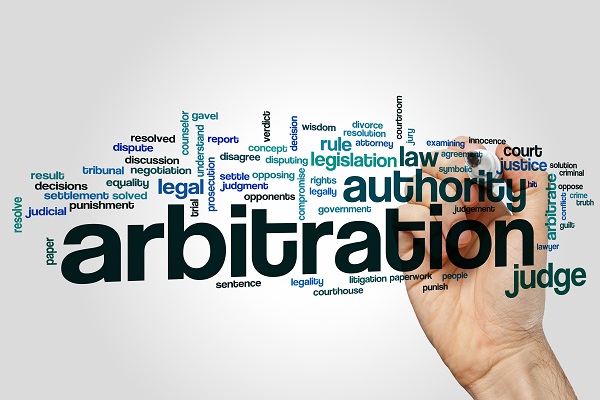The U.S. Court of Appeals for the Seventh Circuit recently reversed the dismissal of a consumer’s second lawsuit against a debt collector for failure to notify a credit reporting agency that the debt was disputed.
Posts published by “Hector E. Lora”
Hector E. Lora manages the firm’s Florida office and has substantial experience in all phases of complex commercial litigation, including bench and jury trials as well as appellate practice. Hector represents lenders, servicers, debt collectors and debt buyers in complex mortgage foreclosure actions, quiet title actions, federal TILA, RESPA, TCPA, and FDCPA actions and Florida FCCPA actions brought by borrowers or debtors. He also represents creditors in bankruptcy litigation, purchasers of accounts receivable or factoring companies that provide revenue-based financing to small and mid-sized businesses in collection actions, and landlords in commercial and residential evictions. Hector’s broad litigation experience includes over a decade of defending civil enforcement actions filed by the Federal Trade Commission as well as real estate contract disputes and partition actions, contested mortgage foreclosure and condominium lien foreclosure actions and the foreclosure of UCC Article 9 security interests. Hector also has advised a variety of types of businesses regarding their compliance with applicable federal and state consumer protection laws, including the Federal Trade Commission Act, the Telephone Consumer Protection Act (TCPA), the Telemarketing and Consumer Fraud and Abuse Prevention Act, the Telemarketing Sales Rule, the Controlling the Assault of Nonsolicited Pornography and Marketing Act of 2003, and Florida laws governing telephone solicitation and communication. Hector received his Juris Doctor from the Georgetown University Law Center, and his undergraduate degree with honors from the University of Florida. For more information, see https://mauricewutscher.com/attorneys/hector-e-lora/
In a case of first impression, the U.S. Court of Appeals for the Fifth Circuit recently held that the protections against default judgment under the Servicemembers Civil Relief Act (SCRA) do not apply to the seizure and sale of real property in in rem proceedings under Louisiana law where the debtors have agreed to a confession of judgment in the mortgage or security agreement.
The U.S. Court of Appeals for the Fifth Circuit recently reversed the denial of a lender’s motion to compel arbitration in an adversary bankruptcy proceeding for allegedly violating the federal Truth in Lending Act (TILA), holding that -- despite conflicting clauses in two different relevant agreements -- the parties had entered into a valid arbitration agreement that delegated the threshold issue of arbitrability to the arbitrator.
The U.S. Court of Appeals for the Fifth Circuit recently held that putative class members were not entitled to tolling under Florida’s statute of limitations because the federal rule of tolling for putative class members did not override the Florida statute.
The U.S. Court of Appeals for the Second Circuit recently held that the federal False Claims Act (FCA) applies to persons who present false or fraudulent loan applications to Federal Reserve Banks (FRBs) because the latter are “agents of the United States” within the meaning of the FCA and the loan money is provided by the United States to advance a government program or interest within the meaning of the FCA.
The U.S. Court of Appeals for the Seventh Circuit recently reversed as excessive a jury’s award of $3 million in punitive damages against a mortgage servicer for inadequate recordkeeping, misapplication of payments, and poor customer service. However, the Court affirmed the jury’s award of $582,000 in compensatory damages and remanded the case to the trial court with instructions to reduce the punitive damages award to $582,000, a 1:1 ratio of compensatory to punitive damages.
The U.S. Court of Appeals for the Eleventh Circuit recently reversed the dismissal of a pro se consumer’s claims under the federal Fair Credit Reporting Act (FCRA), holding that he stated a plausible claim for relief with his allegations that the defendant creditor obtained his credit report without his consent, and failed to reasonably investigate his credit reporting disputes. However, the Court affirmed the trial court’s dismissal of the consumer’s claim under the federal Fair Debt Collection Practices Act (FDCPA) that the creditor defendant used a “false name” in attempting to collect the debt owed to it.
The U.S. Court of Appeals for the Seventh Circuit recently reversed the dismissal of a debtor’s claim under the federal Fair Debt Collection Practices Act, holding that the debtor stated a plausible claim that the dunning letter she received violated the FDCPA. Here, the Court held that the dunning letter at issue implied that the debt collector would file a 1099C form with the Internal Revenue Service, when in reality it was clear to the Seventh Circuit that the creditor would never file a 1099C form because the amount in each letter was less than $600.
The U.S. Court of Appeals for the Sixth Circuit recently affirmed a trial court’s ruling that, at least under Michigan law, a lender could recover against a living trust that guaranteed a loan from the property held by the trust. A copy of the opinion in JPMorgan Chase Bank, N.A. v. Winget, et al is available at: Link to Opinion. A closely-held company obtained a loan of almost a half-billion dollars from a group of banks. The company’s principal agreed to guarantee the loan, both individually and on behalf of his living trust. The borrower defaulted and the lender sued the…
In a case of first impression in that circuit, the U.S. Court of Appeals for the Ninth Circuit recently reversed a trial court’s dismissal of a consumer’s Fair Credit Reporting Act (FCRA) claim for lack of standing and failure to state a claim, holding that the plaintiff had Article III standing. In so ruling, the Ninth Circuit held that the consumer suffered a concrete injury in fact when a bank obtained her credit report for a purpose not authorized by the statute, and it was irrelevant whether the report was published or used by the party requesting it. The Court…
The U.S. Court of Appeals for the Third Circuit recently held, in a case of first impression in that circuit, that a secured creditor’s failure to turn over collateral repossessed prior to the filing of the bankruptcy petition does not violate the automatic stay. A copy of the opinion in In re Denby-Peterson is available at: Link to Opinion. The debtor’s automobile was repossessed after she defaulted on her installment loan. She then filed a voluntary petition under Chapter 13 of the Bankruptcy Code, notified her creditors and demanded the return of the automobile. The creditors did not comply, and the…
The U.S. Court of Appeals for the Fifth Circuit recently held that a bankruptcy court lacks the power to enforce discharge injunctions entered in other districts, and that the debtors’ particular private education loans were not excepted from discharge. A copy of the opinion in Crocker v. Navient Solutions, LLC is available at: Link to Opinion. Two debtors obtained student loans, one to prepare for his bar exam, and the other to fund tuition and expenses to attend a vocational school, from a “for-profit, public corporation whose loans are not part of any governmental loan program.” The loans were then transferred…












